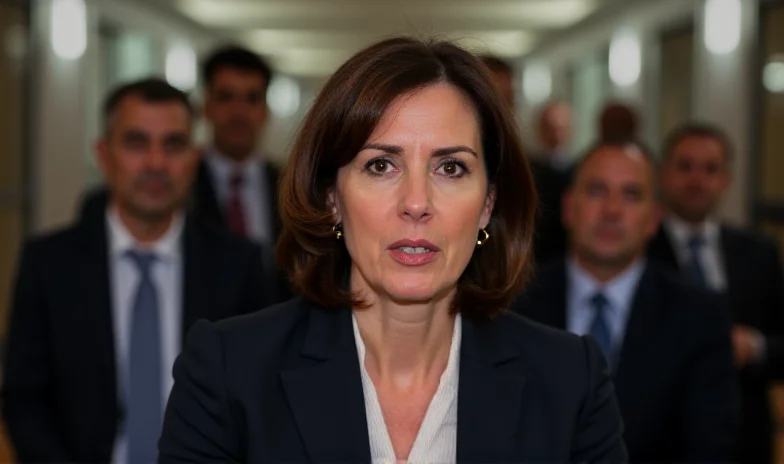Catalonia is experiencing a period of significant change, marked by evolving political strategies and economic realignments. From debates over immigration policy to the return of key business figures, the region is navigating a complex landscape.
Economic Optimism and Business Decisions
Alícia Romero, the Catalonian Minister of Economy, has expressed optimism about the region's financial future. She believes Catalonia can return to financing itself in the markets by 2026 after reducing its debt. Romero also emphasized that "confronting Catalonia with the rest of Spain doesn't provide solutions," suggesting a more collaborative approach to economic growth.
 The return of La Caixa group to Catalonia, specifically Barcelona, is seen as a positive sign. President Illa celebrated this, stating, "We’re on the right track." This move is perceived as a boost to the region's economy and a step away from the tensions of the Catalan independence process. The government views business decisions, such as those made by figures associated with the Caixa empire, as "priceless," reaffirming their policy for Catalonia and potentially sparking a new economic phase.
The return of La Caixa group to Catalonia, specifically Barcelona, is seen as a positive sign. President Illa celebrated this, stating, "We’re on the right track." This move is perceived as a boost to the region's economy and a step away from the tensions of the Catalan independence process. The government views business decisions, such as those made by figures associated with the Caixa empire, as "priceless," reaffirming their policy for Catalonia and potentially sparking a new economic phase.
Immigration Policy and Political Tensions
Immigration policy is proving to be a contentious issue. The government is carefully managing its moves to prevent pushback from Podemos regarding the immigration delegation in Catalonia. Belarra's group has voiced strong ideological opposition to a proposed law, highlighting the divisions within the political landscape.
The government has also responded to concerns raised by Junts, clarifying that Catalan "will not be a requirement to obtain a residence permit" following the delegation of immigration competencies. Ministers Félix Bolaños and Elma Saiz emphasized that the proposed law by PSOE and JxCat does not include language proficiency as a requirement.
 The delegation of immigration competences has also sparked opposition from other regions of Spain. Five autonomous regions of the PP are considering legal challenges, with Feijóo stating, "It is the gravest transfer in constitutional history." This shows the deep divisions and sensitivities surrounding the issue of regional autonomy and immigration policy.
The delegation of immigration competences has also sparked opposition from other regions of Spain. Five autonomous regions of the PP are considering legal challenges, with Feijóo stating, "It is the gravest transfer in constitutional history." This shows the deep divisions and sensitivities surrounding the issue of regional autonomy and immigration policy.
Looking Ahead
Catalonia's future hinges on navigating these complex political and economic currents. The region's ability to foster collaboration, address concerns about immigration policy, and attract investment will be crucial for its continued growth and stability.
 The interplay between regional autonomy, national politics, and economic development will continue to shape Catalonia's trajectory. The return of business figures like those from La Caixa group is a positive signal, but ongoing debates about immigration and regional power dynamics suggest that the path forward will be anything but straightforward.
The interplay between regional autonomy, national politics, and economic development will continue to shape Catalonia's trajectory. The return of business figures like those from La Caixa group is a positive signal, but ongoing debates about immigration and regional power dynamics suggest that the path forward will be anything but straightforward.
Ultimately, Catalonia's success depends on finding a balance between its unique identity and its place within the broader Spanish context. As Minister Romero noted, collaboration and dialogue will be key to unlocking the region's full potential.
"Confronting Catalonia with the rest of Spain doesn’t provide solutions," - Alicia Romero, Catalonian Minister of Economy.
